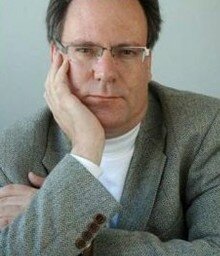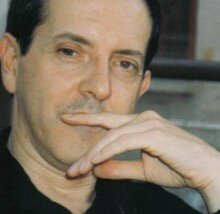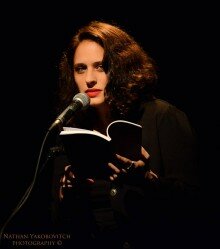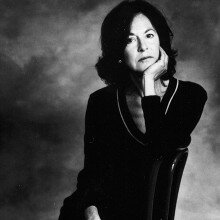Ukrainian Literary Identity Today
The recent orange revolution in Ukraine has virtually assured that the linguistic and cultural space of Ukrainians will not only survive but, given more opportunities under the first truly democratic Ukrainian government, should flourish even more. (1) Although the historical past, as for any nation, largely distinguishes Ukrainian identity, the present will serve to define it in new ways for the future — and that future has a clear Western orientation.
This cultural tilt toward the West has been a trend in modern Ukrainian history and reached an earlier zenith during the period in the 1920s that literary critic Jurij Lawrynenko retrospectively called the “executed renaissance”, when several hundred of the best Ukrainian writers were imprisoned, executed, or coerced into suicide by Stalin’s regime. (2) The willing gravitation to the West has been stronger than the coercive pull to the East, primarily because Russia, by maintaining colonial attitudes in virtually all of its dealings with the country, has never acted as an equal partner to what it calls its eastern Slavic ‘brother’ nation.
Ukraine has always been treated as Russia’s little brother, both politically and culturally, and even historically has been called “Little Russia” by the Russians. Edward Said has described this kind of cultural relationship in colonial contexts as the “unequal relationship between unequal interlocutors.” (3) That paradigm has been significantly altered in the postindependence atmosphere during which the Ukrainian language and culture have become more firmly rooted. The gravitation of Ukrainian mass culture toward the West was particularly evidenced by the hip-hop, rock, and reggae-inspired performances by Ukraine’s leading musical stars to the massive crowds of election protesters on Independence Square in the capital city of Kyiv [Kiev] for those weeks of frigid winter cold. Curiously, the seeds for that democratic revolution and Western orientation may, in fact, have been planted nearly two decades earlier during the last years of the Soviet Union by many of the innovative Ukrainian makers of culture, who emerged out of the shadows of what was then called in Ukrainian the Andergraund.
The main driving force behind innovation in Ukrainian literature unquestionably has been the literary performance group Bu-Ba-Bu, whose name comes from the first syllable of the Ukrainian words for buffoonery (bufonada), farce (balahan), and burlesque (burlesk).(4) The triumvirate of writers Yuri Andrukhovych, Viktor Neborak, and Oleksander Irvanets, who began with impromptu readings in apartments and coffeehouses among friends in order to avoid the watchful eyes of the KGB, turned to showcase their highly energized performances in everincreasing public readings and happenings, thereby reinvigorating the Ukrainian language and literary landscape. They offered a vibrantly alternative creative energy to a young, urban audience that, following decades of cultural stagnation under the Soviets, thirsted for newness and innovation.
While there has been a general lack of government involvement in language and cultural issues in Ukrainian culture since independence was declared in 1991, the innovations sparked by Bu-Ba-Bu and others generated a burgeoning renaissance and modernization of Ukrainian culture. Bu-Ba-Bu became a hugely popular phenomenon among the younger generation and sparked a proliferation of innovative groups like LuHoSad (MeadowGarden), Propala hramota (The Lost Letter), and others, that in many ways resembled the countercultural Beat Generation of the 1950s and 1960s in the United States which rebelled against American bourgeois capitalist values. (5) These writers, whom I propose to call (by analogy with the Beats) the Bu-Ba-Bu Generation, rebelled against their own dominant power structures: against the barrenness of socialist realism imposed on them by the all-controlling Soviet state as well as against the kind of overt nationalism embraced by their immediate Ukrainian literary predecessors, the Poets of the Sixties.
The Bu-Ba-Bu writers needed to find their own aesthetic path, which they managed to do with humor (oftentimes irreverent and scatological), irony, and passion. A multimedia ‘happening’ like Bu-Ba-Bu’s “Chrysler Imperial” performance at the Lviv Opera Theater in 1992 drew sold-out crowds for two days. (6) Local newspapers and other media outlets covered it extensively. New homemade and official journals and publications sprang up throughout the country during the time of glasnost, and they continue to thrive despite the lack of virtually any government support. These innovations, of course, did meet with a certain amount of ire from archtraditionalists in the general public. Nevertheless, if Ukrainian culture was to become a vibrant and viable modern culture following its independence and to break the chains of some three centuries of tsarist and Soviet colonial rule, it had to become more open to change. It certainly has made tremendous strides in that direction.
The postmodernist attitudes of the younger-generation culture-makers went beyond a mere mocking of icons of the Ukrainian past—particularly parodies of Cossacks —in their search for self-definition. Many Ukrainian writers of today transcend a number of taboos held both by traditionalist Ukrainian culture as well as by the now defunct Soviet system. For example, Oksana Zabuzhko, in her prose piece ‘The Alien Woman’ (1989) and in her quasi-autobiographical novel Field Research in Ukrainian Sex (1996), candidly discusses both the physical and emotional aspects of her sexuality. The verses of poets like Viktoria Stakh and Maryana Kiyanovska exhibit an overt eroticism and a frank depiction of the physical side of female sexuality that would have been inadmissible in Ukrainian literary culture in previous eras. Yuri Andrukhovych, too, quite often, graphically depicts sexual scenes in his novels. (7)
In general terms there has been a marked shift in Ukrainian literature from the search for mass to individual identity. While nationality does play a significant role in the literary culture, it is no longer the driving force behind it — perhaps because the Ukrainian state finally does exist and, following the Orange Revolution, promises continued stability. Oksana Zabuzhko’s Field Research in Ukrainian Sex (1996), which ostensibly depicts her heroine’s sexual exploits (or lack thereof), obsessively deals with the notion of her national identity as well. She constantly chides her “zabembana Ukraina” (her screwed-up Ukraine), and with her constant reproaches attempts to lead her sisters (and brothers) to a liberating sense of self-identity and greater enlightenment. (8)
Yuri Andrukhovych’s 1996 novel Perverzion, perhaps, represents the most articulate embodiment of the younger generation’s quest for a new Ukrainian identity within the newly reformulated Europe. Paradoxically, the novel’s hero/antihero, the Lviv poet Stakh Perfetsky (whose appearance seems to be modeled on the Cossack dandy style of the poet Nazar Honchar), takes to the road for a conference in Venice called “The Postmodernist Absurdity of the World: What Is on the Horizon?” His travels take him through Eastern Europe and Germany, ostensibly in search of adventure like a Kerouac hero, but, like Kerouac’s Sal Paradise in On the Road — with, by the way, the same initials as Stakh Perfetsky — his quest turns out to be more for his own identity. Kerouac’s Sal in his journey from home comes to the realization that he cannot escape his middle-class origins and makes his peace with it, whereas Andrukhovych’s Perfetsky can never seem to escape his national identity — until he allegedly commits suicide or at least becomes transformed into myth and disappears at the end of the novel. Virtually all of Andrukhovych’s literary writings deal with quests as well as literal and figurative journeys to selfidentity. His earlier novels Recreations (1992) and Moskoviada (1993) define Ukrainian identity in opposition to the Soviet empire, the latter serving as an Orphic descent into the hell of the crumbling Soviet capital.
The Bu-Ba-Bu generation of writers focused largely on creating a more modernized version of the Ukrainian language, with the breaking of all manner of taboos as an essential feature of their literary method. Words previously banned in public use and sexual suggestiveness emerged in extraordinarily playful ways in their works. A predisposition to linguistic change often marks one of the vital forces in cultural development, and language innovation has been one of the primary legacies of the Bu-Ba-Bu Generation. Viktor Neborak’s poetry, particularly in his pathbreaking collection The Flying Head (1990), is rife with neologisms and the flouting of the rules of grammar, syntax, and punctuation. The collection is subtitled “A Show in Verse” and contains a great amount of multimedia performance elements, including rock-music songs, rap, jazz, and punk.
For a time Neborak himself sang his poems with a rock band named Neborok (the rok coming from the Ukrainian word for rock music) that performed in paint and costume in Ukraine and Poland. The band recorded a cassette that quickly sold out, and the album is now available in CD format in the Legends of Ukrainian Rock series. Much of Neborak’s early poetry is audacious and striking, as imposing as his tall stature. His poems are not meant to be read as much as performed, and they are particularly powerful in his at times lyrical, at times booming, and always expressive voice. By fusing his poetry with the musical forms most popular in his day, he directs his poetry from The Flying Head at the masses, especially at those Ukrainians young in spirit, not just at ivory-tower elites. It is no surprise that many of his poems were turned into songs by rock performers, particularly by Taras Chubai of the Lviv-based group Plach Ieremii (Jeremiah’s Cry). The popularity of some of the song versions (such as Chubai’s “The Flying Head”) at times overshadowed that of the original poems. This symbiotic association with the rock-music scene gave the Bu-Ba-Bu Generation writers a way to reach a much larger audience than poetry in most cultures usually attracts.
Bu-Ba-Bu quite openly fused all the arts in their performances. Musicians, particularly pianists, often provided improvisational accompaniment to their more lyrical readings. This aspect of their creativity marks another link in style with the American Beats. Note, for example, Steve Allen’s recorded jazz piano accompaniment to Jack Kerouac reading his poetry on the album Poetry for the Beat Generation (1961), along with Kenneth Rexroth and Lawrence Ferlinghetti’s Poetry and Jazz in “The Cellar” (1959). Bu-Ba-Bu additionally worked closely with a number of visual and performance artists who both illustrated their books and journal publications and ornamented the stage with their works. Lviv artist Yurko Koch was most prominent in this respect, with his urban landscape paintings, exquisite book illustrations, and extraordinary caricatures.
The latter are particularly impressive in a 1995 special issue of the literary almanac Chetver (Thursday) entitled Chrysler Imperial, which functions as a kind of lampooned “who’s who” encyclopedia of Ukrainian culture at the time. One of the two editors of the almanac, Yuri Izdryk (the other is Yuri Andrukhovych), is closely linked to the Bu-Ba-Bu writers and, besides being a philosophical prose writer of note in his own right, provided piano accompaniment to readings of the group as well as striking paintings used as illustrations, particularly his unique hybrid ‘angels’ for Andrukhovych’s verse collection Exotic Birds and Plants with “India” Appended (1997). Other artists closely linked to Bu-Ba-Bu included the performance artist Volodymyr Kaufman, who staged the Chrysler Imperial happening in 1992, and Volodymyr Kostyrko, who provided stage designs and large-scale paintings for performances.
Andrukhovych’s novel Perverzion, too, is a performative novel, with rap, reggae, opera, and many other performance elements comprising an integral part of its composition. His poetry, like Neborak’s, although not as bombastic, is meant to be performed and is better read aloud for its subtle sound qualities. It is based mostly on the principle of yang — bold, resonant, and strong, yet lyrical and tender when it needs to be, particularly in love poems that convey a fleeting taste of the sublime. It also often contains medieval battle and quest imagery, as well as vivid literal and metaphorical journeys of the spirit like the exquisite cycle ‘India.’ Many of Andrukhovych’s poems have also been set to music, mostly by Jeremiah’s Cry. The poem-songs ‘The Griffin’ and ‘The Viper’ particularly resonate well as songs. Andrukhovych, who has a strong singing voice, has even begun to perform in public and recently completed a brief tour through Poland with several Polish rock musicians. Oleksander Irvanets is the most purely comedic member of Bu-Ba-Bu and primarily performed poetry and humoristic prose of a topical nature with the group. As a result of that topicality, perhaps, his poetry may lose more in translation in non-Ukrainian cultural contexts. He also is known as a dramatist and published his first satirical novel, Rivne-Rovno, in 2002. Some of his more recent writings, like the story ‘The Lviv Gate,’ are less comic and more in the style of magical realism.
The Bu-Ba-Bu Generation has given the modern Ukrainian reading public a sense of humor — often ironic, sometimes black — and has given the culture a strong jolt toward innovation, toward more openness, toward linguistic change. Barriers have been crossed and aesthetic tastes have been modernized, even postmodernized. The now deposed Kuchma-led Ukrainian government, in power from 1994 to 2004, took virtually no lead in promoting the recent Ukrainian revival of literary culture. This has had both positive and negative consequences. Governments of every ilk can hinder or destroy what they as bureaucracies are incapable of understanding, so government interference or censorship could have served to impede development.
The Kuchma government, fortunately, at least remained benign. Yet a proactive government policy, one that would work to support greater print runs of popular works in Ukrainian, one that would make the best of new Ukrainian literature accessible to all regions of the country at reasonable prices, one that would support individual authors and journals with some sort of subsidies — all would do much to promote a more attuned, modern, and articulate vision of Ukrainian literary identity across a broader spectrum of the population. The stakes, of course, are the heart and soul of the country. The mass acceptance (or lack thereof) of the literary culture of new authors writing in Ukrainian will play a large role in determining whether Ukraine culturally continues to grow into a transnational, countrywide phenomenon that begins to permeate the previously Russified areas in the East and South of the country. Ukrainian writers have shown that they know the West extraordinarily well, but the inverse has not been true to date. In Viktor Neborak’s words, “To be a Ukrainian poet is to be hidden from the rest of the world, to be inconspicuous . . . for almost everything Ukrainian is still inconspicuous in the eyes of the world.” (9) While those words rang true when he wrote them in 2000, the Orange Revolution has made Ukraine considerably more conspicuous. It is hoped that the rest of the world now will become more open to hearing the intriguing developments and voices of what heretofore had been an inconspicuous, submerged culture. The striking innovations introduced by the Bu-Ba-Bu Generation have clearly left a profound and indelible mark on Ukrainian literary culture for decades to come.
Pennsylvania State University
I wish to extend my special thanks to Olha Luchuk for all her assistance in helping to gather the Ukrainian materials for this issue.
(1) The Orange Revolution refers to the spontaneous demonstrations by hundreds of thousands of people in Kyiv in late November 2004 against the election results falsified by the political machine of then prime minister and Kremlin-backed candidate Viktor Yanukovych. The bright-orange color, as a symbol of hope, was the emblem of the supporters of the prodemocracy candidate Viktor Yushchenko, who eventually won the repeat election.
(2) For a detailed discussion of Stalin’s destruction of the Ukrainian intelligentsia, see George S. N. Luckyj, Literary Politics in the Soviet Ukraine, 1917–1934, rev. ed. (Durham: Duke Univ. Press, 1990). See also Myroslav Shkandrij, Modernists, Marxists and the Nation: The Ukrainian Literary Discussion of the 1920s (Edmonton: Canadian Institute of Ukrainian Studies Press, 1992).
(3) Edward Said, Culture and Imperialism (New York: Knopf, 1993),
191.
(4) For a good critical discussion of the Bu-Ba-Bu phenomenon in English, see Mark Andryczyk, “Bu-Ba-Bu: Poetry and Performance,” Journal of Ukrainian Studies 27:1–2 (Summer–Winter 2002): 257–72.
(5) The name LuHoSad, which literally means “meadow garden,” with a linking vowel between the two words, comes from the first syllable of the last names of the three members of the group: Ivan Luchuk, Nazar Honchar and Roman Sadlovsky.
(6) For a detailed account of the Chrysler Imperial happening in 1992, see Alexandra Hrycak, “The Coming of ‘Chrysler Imperial’: Ukrainian Youth and Rituals of Resistance,” Harvard Ukrainian Studies 21:5 (June 1997): 63–91.
(7) In particular, see Recreations (1992), Moskoviada (1993), Perverzion (1996), and The Twelve Rings (2003). The novel Recreations (1998) has been published by the Canadian Institute of Ukrainian Studies Press in Marko Pavlyshyn’s English translation. Perverzion (2005) has been published in my translation with Northwestern University Press.
(8) Svitlana Kobets observed this in her review of Zabuzhko’s book in Slavic and East European Journal 41:1 (Spring 1997): 183–85. As she notes, “The theme of Ukraine, which is central to the novel, appears in numerous aspects: the problem of Ukraine’s existential situation, its post-Stalinist history, its place in the world, the Ukrainian nation and the Ukrainian intelligentsia, Ukrainian women and Ukrainian men, Ukrainian culture and Ukraine’s future” (182).
(9) Pavlo Tychyna, The Complete Early Poetry Collections of Pavlo Tychyna, tr. Michael M. Naydan (Lviv: Litopys, 2000), 26.









